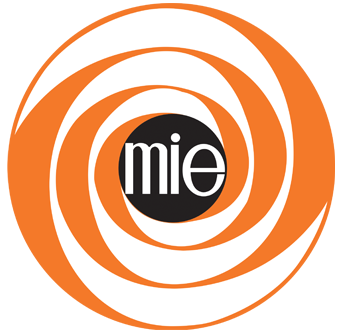Background
The MIE has been involved in curriculum development since 2010, when it took over from the NCCRD. It has since then produced the National Curriculum Framework (NCF) and the Teaching and Learning Syllabus (TLS) for all taught subjects, as well as numerous textbooks and curriculum resources for Grades 1-9, including the Extended Programme (EP). Textbook adaptation for SEN learners and curriculum review and evaluation also form an integral part of the activities of the Curriculum Unit. Further, staff is involved in consultancy and training, at both the national and international levels.
Mission and Functions of the Curriculum Unit
Mission:
To spearhead the curriculum development mandate of the MIE by keeping abreast with pedagogical, technological and societal transformations with the goal of charting the teaching and learning landscape across the education system and developing the readiness of stakeholders for the 21st century and beyond.
The mission of the Unit is aligned with the institutional goals, which are to (i) position the MIE as a Curriculum Unit of Excellence to meet local, regional and international needs; (ii) strengthen the capacity of the MIE to conduct research to inform policy and practice; and (iii) lead the process of change and innovation in education through research and innovative practices. The mission of the Unit is also aligned with international standards of quality and the objectives of SDG 4. (“to ensure inclusive and equitable quality education and promote lifelong learning opportunities for all” – Source: https://en.unesco.org/gem-report/sdg-goal-4)
Functions
• Development and review of the National Curriculum Framework (NCF) and Teaching Learning Syllabus (TLS);
• Development and review of textbooks and Teaching and Learning Resources;
• Curriculum development and adaptation for Special Education Needs;
• Curriculum evaluation;
• Provision of continuous professional development for all key stakeholders for the effective implementation of the curriculum;
• Inform policy based on research related to curriculum development and implementation;
• Development of research-based innovative approaches for curriculum development, including technological accommodation;
• Offer consultancy services for curriculum-related activities at the local and international levels.
Curriculum Innovation
The Curriculum Unit is committed to ensuring the relevance and currency of its products and services by remaining at the forefront of advances in the field of education, curriculum development and technology. The fast-changing society of the 21st century demands that the school curriculum reacts responsively to the needs of the new generation of learners, technological transformations and new job markets. Innovation is thus a sine qua non for adapting to changes, some of which may be unexpected. The academic team of the Curriculum
Unit is thus continuously engaged in a process of innovation and proactively responds to novel challenges.
To fulfil this innovative endeavour, the Curriculum Unit is engaged in:
- developing novel teaching and learning resources;
- exploiting technological advances to support the development and implementation of the curriculum;
- providing adapted support systems to teachers;
- seeking partnerships with established international partners for curriculum improvement.
Digitalisation of the curriculum
The Curriculum Unit is also responsible for the digitalisation of curriculum materials and resources that it produces. This goes in line with the philosophy of giving digital access and visibility to the products and services of the Curriculum Unit, as well as enhance classroom pedagogical practices. In its endeavour to innovate and be at the forefront of online curriculum support to its immediate stakeholders, the Unit harnesses the latest technological developments.
Curriculum Research
Curriculum research is critical in enhancing our educational system in its multifarious dimensions, especially for a country with an increasing orientation towards a knowledge-based economy.
Research thus constitutes an integral activity of the Curriculum Unit to ensure the relevance, currency and quality of its services and products. It serves the following purposes:
- To provide evidence-based data to inform curriculum development and implementation, including pedagogical and technological innovations;
- To stimulate academic discussion, reflection and awareness on matters of curriculum development, implementation and evaluation;
- To be in line with contemporary debates and international trends in curriculum development;
- To find and seize opportunities for curriculum innovation.
Consultancy Services
With over three decades of experience, MIE has developed considerable expertise in curriculum development, implementation and evaluation. The Curriculum Unit welcomes requests from institutions (local or regional) that are seeking consultancy in matters of curriculum development from design of Curriculum Frameworks to the production of textbooks, curriculum dissemination and curriculum implementation. The consultancy services include:
- Policy advice and advocacy;
- Technical assistance;
- Capacity-building;
- Curriculum scoping, design, development, and evaluation;
- Curriculum adaptation.
Quality Assurance mechanisms
The Curriculum Unit ensures that each phase of the curriculum development process is quality driven, from the setting of the panel to the final curriculum materials. It has explicit internal and external mechanisms to ensure that its products and services are of good standards and meet the expectations of its users.
